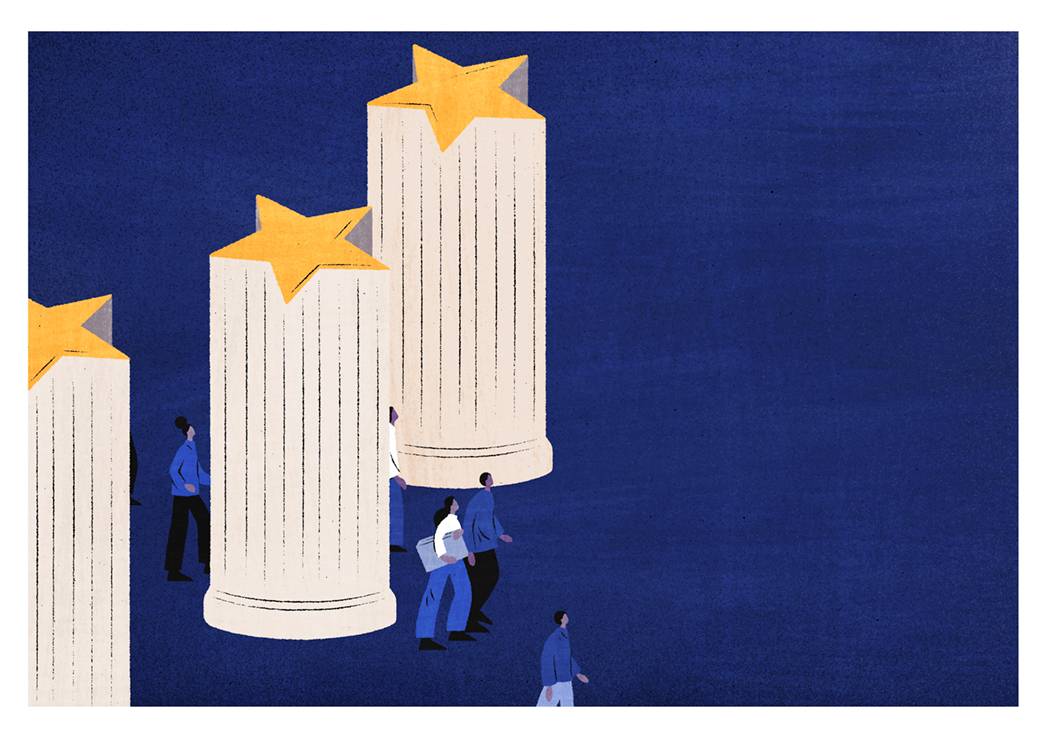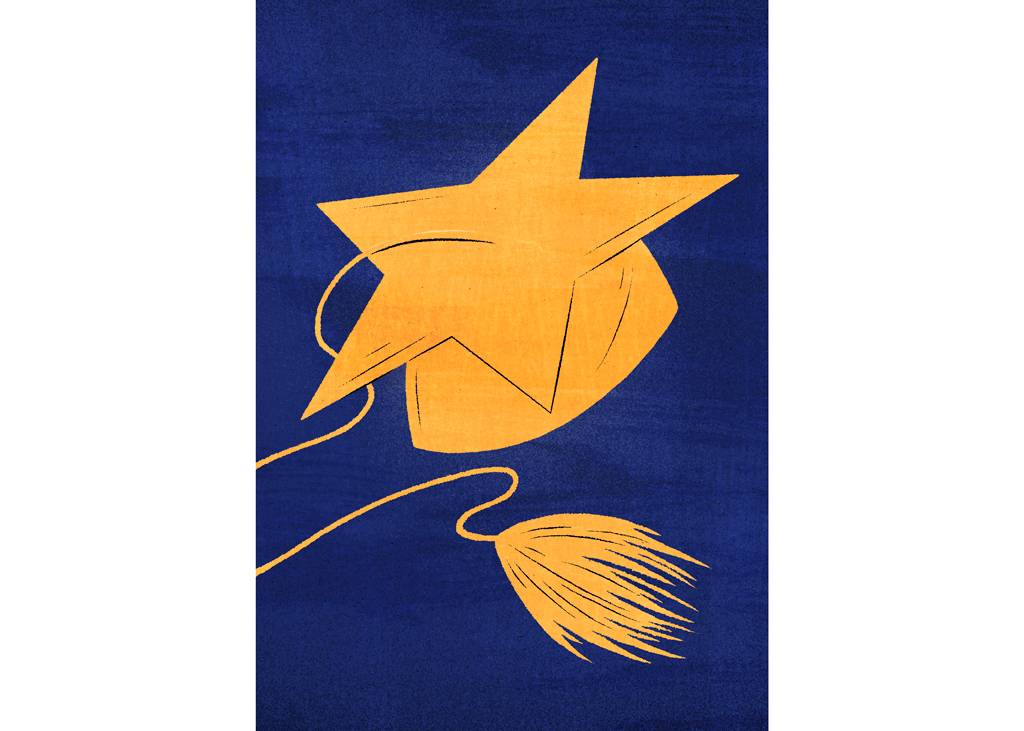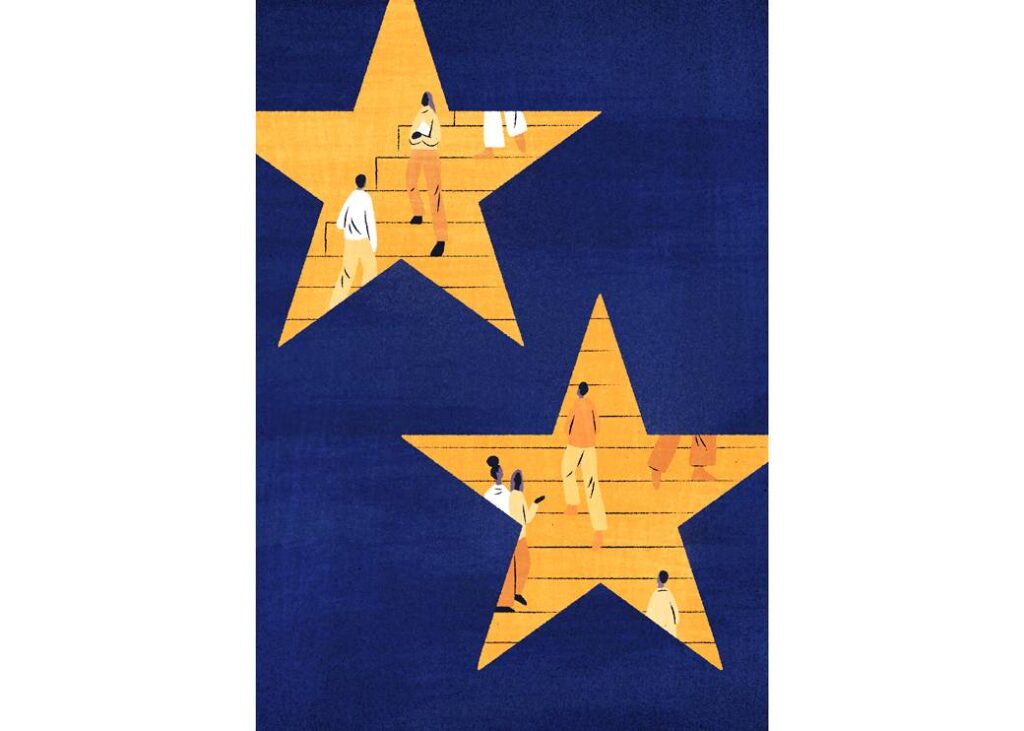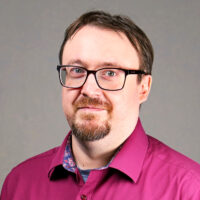
The Academic Union
The European Union can be seen in many ways in daily university life. How are Finns influencing the Union’s higher education policy?
Text terhi hautamäki images Outi Kainiemi English translation Marko Saajanaho
Hanken School of Economics Professor of Commercial Law Petri Mäntysaari opens by remarking that today, he started EU influencing at 4 AM.
Mäntysaari is finalising an article about the effects of digitalisation on higher education institutions’ values. It is based on a presentation he held in March at a European higher education area researcher conference in Bucharest.
Mäntysaari is responsible for the Finnish Union of University Professors’ international matters. He is active in the European Trade Union for Education (ETUCE) and its Higher Education and Research Standing Committee (HERSC). He is also involved in Nordic cooperation and the Bologna Follow-Up Group working group, overseeing the Bologna Process.
Comprehensive examination of digitalisation is one of the causes he advocates in these arenas.
”Before the pandemic and early on in the pandemic, digitalisation was presumed to only have positive effects on higher education. This turned out not to be the case.”
Petri Mäntysaari, Professor of Commercial Law, Hanken School of Economics
“Before the pandemic and early on in the pandemic, digitalisation was presumed to only have positive effects on higher education. This turned out not to be the case.”
Mäntysaari’s thesis is this: technological platforms are not merely tools, but instead their use changes the character of universities. For example, they encourage increasingly strict measurement of individual performance and facilitate external temporary work.
The conference at which Mäntysaari spoke was organised as part of the Bologna Process, set up to harmonise the European higher education systems. Influencing European science policy feels natural to Mäntysaari, who has studied European law.
“This gives you a completely new perspective on the university world. It is certainly nice to see if you can influence something and how you can do it.”
The EU is part of daily university life
EU science policy can be observed in many ways at universities. Most tangibly, it can provide a living for a researcher via e.g., ERC or Marie-Skłodowska Curie programme funding. The entire Horizon Europe framework programme funds research over a seven-year period with approximately 95 billion euros.
The Erasmus+ programme facilitates student and staff mobility. The EU also sets science policy recommendations – for example, open science or responsible researcher evaluation. Recently, the Commission published their plans for new joint European degrees. A research and development framework programme for 2028–2034 is in progress, meaning the future research budget and financing instruments are being determined now.
The EU’s science policy shows itself as a mess of acronyms. In practice, influencing means talking to people and maintaining personal connections to Commission officials, for example.
“Through ETUCE, we try to participate in the Commission’s policy formation before we even receive any documents to make statements on. It is already too late in the statement phase because the main points are already locked in by then”, Mäntysaari says.

The Commission is the most important conversation partner for representative bodies.
According to Mäntysaari, a major challenge stems from the EU Treaty, which has separate regulations for education and research. The research article addresses the competitiveness of the research area, with a clear objective. Education, on the other hand, talks about co-operation, mobility, and degree recognition, but the goal is more ambiguous.
“Co-operation and joint degrees become intrinsic values. If something does not work, the solution is to fiddle with co-operation some more”, Mäntysaari says.
According to Mäntysaari, the competitiveness goal should also be introduced to higher education. This means specialisation of higher education institutions, as opposed to further harmonisation. A trend in EU plans is to mention alternative education providers alongside higher education institutions. Mäntysaari emphasises higher education institutions should not be placed on an equal footing with companies offering smaller study modules.
“There are plenty of takers for public funding. We must make sure higher education stays public and is not privatised.”
The Bologna Process advances
The EU’s higher education policy also stretches to the structures of university work. For example, the credit system and split between lower and higher-level degrees are results of the harmonisation of European higher education.
This work, dubbed the Bologna Process, makes progress every three years at ministerial conferences, most recently in Tirana in late May. Between these conferences, the Bologna Follow-up Group oversees the implementation.
Trade Union of Education in Finland (OAJ) Special Advisor Hanna Tanskanen served as an ETUCE representative in the Tirana Ministerial Conference’s preparatory working group. The ministers prepared a communiqué on the focus points of the Bologna Process for the coming years, and ETUCE, for example, have formulated their own demands for the communiqué.
ETUCE is an influential actor representing 11 million Europeans through its member unions. It promotes stable funding, high quality, good working conditions, and freedom of education and science in higher education, largely sharing these themes with OAJ.

“The attractiveness of academic work is one of our points. How to continually keep the best in the sector and how to improve working conditions”, Tanskanen says.
According to Tanskanen, the EU’s higher education policy is an integral part of Finnish higher education policy. Tanskanen herself attends HERSC conferences in Brussels twice a year. OAJ also influences EU-related matters through discussions with the Ministry. The government has appointed 36 subcommittees for EU affairs, and OAJ is part of the education subcommittee. OAJ also had their own election goals in the European Parliament election.
“We must consider how to make use of the EU, which we are committed to as a member state. Universities do not operate in a vacuum, and through EU policy we can advance our causes nationally as well.”
”Universities do not operate in a vacuum, and through EU policy we can advance our causes nationally as well.”
Hanna Tanskanen, Special Advisor, Trade Union of Education in Finland (OAJ)
Even though higher education policy is part of the national jurisdiction, the Commission also uses concrete authority through funding in particular. For example, it can influence the development of study and research environments by funding university alliances.
Ambition and compromises
The EU’s science policy often manifests as so-called soft regulation – guidelines and suggestions. Finnish Union of University Researchers and Teachers Special Advisor Miia Ijäs-Idrobo says these guidelines and recommendations also have value despite not being considered binding regulation.
“Finland has not fallen behind in any way, but these also offer us good practices and direction in which to develop our system”, Ijäs-Idrobo says.
One example is the HR Excellence in Research quality label, an award from the Commission recognising the advancement of researcher working conditions and careers. According to Ijäs-Idrobo, the EU’s science policy has ambitious goals. The final policies are, of course, always results of compromises. A good example is the updated Charter for Researchers. approved by the European Council in December 2023. This is an important issue for FUURT, which strives to improve the attractiveness of research careers.
”Finland has not fallen behind in any way, but these also offer us good practices and direction in which to develop our system.”
Miia Ijäs Idrobo, Special Advisor, Finnish Union of University Researchers and Teachers
Ijäs-Idrobo says the charter is well worth a look. However, it also effectively shows how goals can become diluted along the way.
Last summer, FUURT celebrated the Commission’s direct suggestions, surprisingly direct even. The Commission recommended that one third of a research organisation’s staff was the maximum allowed to work under fixed term contracts. That recommendation could have come directly from FUURT’s own list of goals. However, this suggestion from the Commission was eventually left out of the charter.
“We were also surprised by the charter’s recommendation of the tenure track system for clearing up career prospects, which would allow an eventual move to a permanent position through positive evaluation. Of course, that does nothing to fix the problem or change the fixed term situation.”
FUURT is active not only in ETUCE but also, for example, in the Eurodoc central organisation for young researchers. Ijäs-Idrobo also offers praise for the dialogue with the Ministry of Education and Culture.
“Not all countries have such a good connection, with organisations having direct contact with the ministry who also proactively asks for stakeholder opinions.”
T
Freedom of science is a concern
Markus Penttinen has arrived in Brussels on a morning flight. He has served as Akava’s Head of International Affairs since 2000. Much of his work involves EU affairs.
“The EU is a colourful, multicultural community. Something is happening all the time. Things go forward, and nothing stays in place”, Penttinen says.
Akava influences EU policy on multiple forums. In Finland, the Grand Committee of the Finnish Parliament handles EU affairs. Each ministry has its EU subcommittee. Eurocadres, comprising highly educated specialists, operates in Brussels. Akava comments on Commission proposals and sends statements to the Parliament.
Representative bodies share a common concern: how the EU holds on to expertise and how it could attract researchers on the global scale. Penttinen says the EU’s goal is for its member states to use three percent of their GDP on research and innovation work. However, they are lagging behind. In the meantime, the United States and South Korea are far ahead.
”Ten years ago, everyone would have wondered why we would propose this. But now, freedom of science is no longer a foregone conclusion even in Finland.”
Markus Penttinen, Head of International Affairs, Akava
Akava strives for increasing research funding. The 95 billion euros of the framework programme may sound like a considerable amount, but the situation is put in perspective by the fact a single American company, Amazon, spends 85 billion dollars per year on R&D.
Akava also pursues the addition of freedom of science, education, and art as an explicit requirement in the EU’s rule of law criteria.
“Ten years ago, everyone would have wondered why we would propose this. But now, freedom of science is no longer a foregone conclusion even in Finland”, Penttinen says.
Late in the year, the government exceptionally intended not to approve the Strategic Research Council’s programme theme, which was immigration. Eventually, the theme was postponed by a year. An extreme example is Hungary, where research is thoroughly politically directed.
Science policy relates to all decision-making. We want EU decisions to be based on scientific fact. Soon, this principle will be tested, as the EU decides their reduction target for carbon dioxide emissions by 2040. Scientists recommend a reduction target of at least 90 percent. The outcome is very important for the climate.
“But it is important in another way, too. It says whether the EU’s decision-making apparatus follows an extremely clear and unambiguous scientific recommendation.”
University safeguarding interests in the EU
In addition to organisations, universities are active on EU forums. Saara Harjula works as the Senior Advisor for EU Affairs at the University of Helsinki. The self-described “EU nerd” has spent a couple of decades working in Brussels and occasionally also handled EU affairs for Unifi, the Council of Rectors of Finnish Universities.
According to Harjula, the EU’s influence in higher education policy is on the rise. Strategic direction also influences national science policy. The EU’s recommendations often trickle down to the practices of funders such as the Academy of Finland and Business Finland. At that point, they are concretely realised.
The result of the Parliament election and the Commission’s formation are significant. Political will can be directly seen in how much money is to be allocated to research and what the focus points are.
During the spring, the university has made efforts to, for instance, influence the Horizon Europe work programme for 2025–2027. The university also participates in the conversation about what national actions are needed to make the joint European degrees proposed by the Commission happen.
Harjula hopes for more proactive dialogue on EU policy with the ministries. The official channel – the Ministry of Economic Affairs and Employment and the Ministry of Education and Culture EU subcommittees – are not an effective forum for making a difference because they handle largely finished documents.
“We operate directly in Brussels quite a lot. Usually, I am accompanied by someone from the rectorate or one of the researchers. The most fruitful approach tends to be to go as a delegation consisting of academic, public, and private sector representatives. A diverse delegation carrying the same message.”
Universities also try to influence matters in Brussels through networks. The University of Helsinki is active in LERU (League of European Research Universities), consisting of 24 research universities. A larger operator is the European University Association (EUA), representing 800 universities.
In Brussels, personal relationships come into play on a frequent basis, and influencing tends to be a long-term grind. It is often impossible to know if your delegation was the specific one that convinced the Commission to write something in their policy paper. According to Harjula, it is a pleasant sight when a matter presented to the Commission appears directly in the work programme on occasion.

